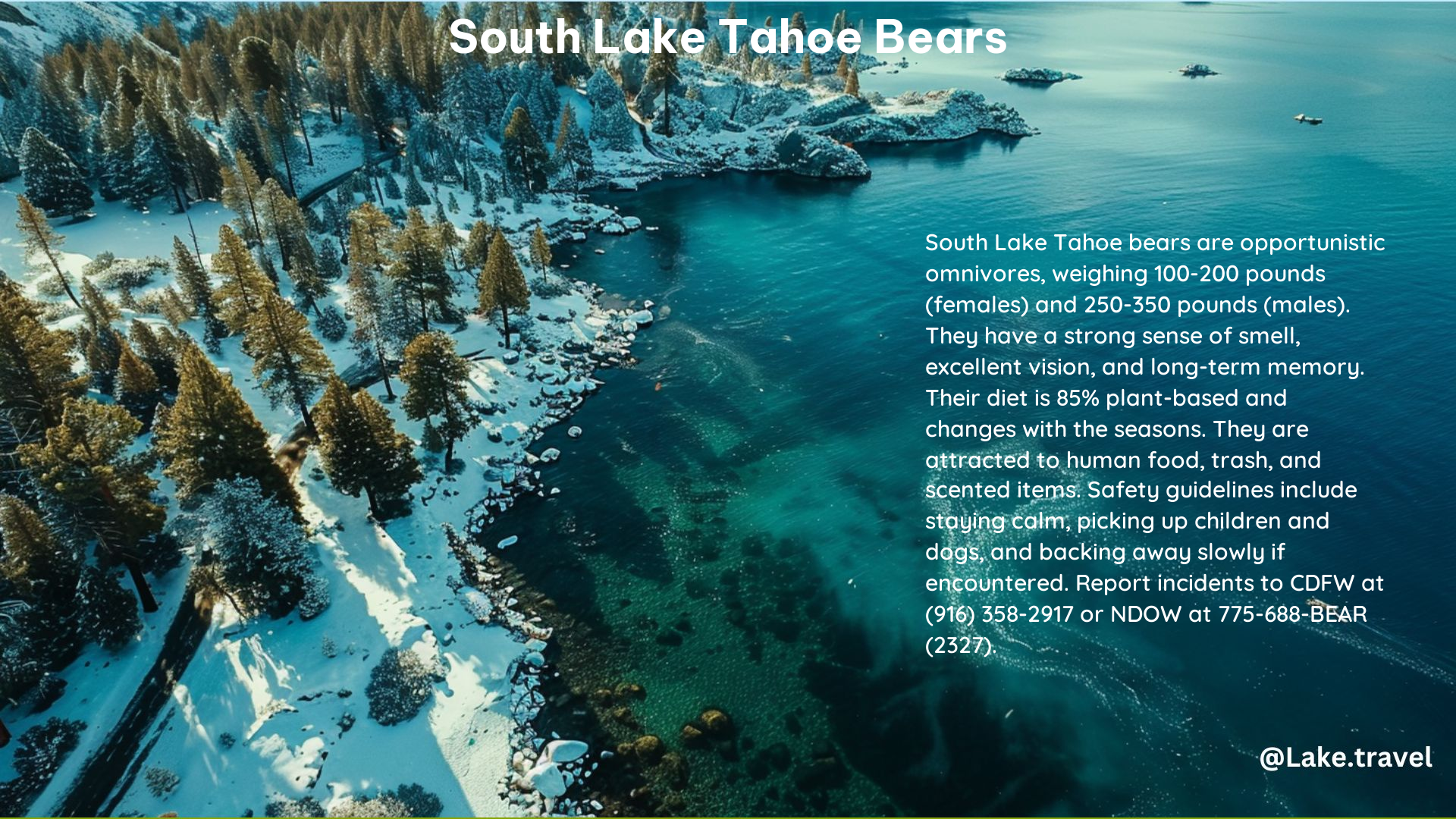South Lake Tahoe is home to a thriving population of black bears, which are the only species of bear found in the region. These bears are known for their adaptability and opportunistic behavior, making them a significant presence in the area. To coexist safely with these bears, it is crucial to manage trash and use bear boxes effectively.
Managing Trash to Avoid Attracting Bears
Securing trash cans, keeping them clean, and storing them properly are essential steps to prevent bears from accessing food sources. Here are some key strategies:
- Use Bear-Resistant Trash Cans: Invest in bear-resistant trash cans or secure regular cans with heavy-duty straps or chains to prevent bears from accessing them.
- Keep Trash Cans Clean: Regularly clean trash cans to remove any food residue or odors that might attract bears.
- Store Trash Properly: Keep trash cans in airtight containers and store them in a secure location, such as a garage or shed, until the day of collection.
- Avoid Leaving Food Outdoors: Do not leave food, pet food, or bird seed outdoors, as these can attract bears.
- Clean Barbecue Grills: Clean barbecue grills and utensils regularly to remove any food residue that might attract bears.
Approved Vendors for Bear Boxes in South Lake Tahoe

The California Department of Fish and Wildlife (CDFW) recommends using bear boxes that meet the Interagency Grizzly Bear Committee (IGBC) standards. Here are some approved vendors in the South Lake Tahoe area:
| Vendor | Product |
|---|---|
| Bear Saver | Bear-resistant containers and boxes |
| Wildlife Protection Products | Bear-resistant trash cans and storage containers |
| BearGuard | Bear-resistant storage containers and trash cans |
Additional Safety Measures
While managing trash is crucial, there are other measures you can take to deter bears from entering your property:
- Electric Doormats: Consider using electric doormats that deliver a mild shock to deter bears from entering homes.
- Electric Wires: Install electric wires around entry points, such as doors and windows, to deter bears.
- Bear-Proof Fencing: Install bear-proof fencing around homes and gardens to prevent bears from entering.
- Education and Awareness: Educate visitors and residents about bear safety and the importance of keeping trash and food secure.
Resources and Statistics
For more information on South Lake Tahoe bears and safety measures, consider the following resources:
- BEAR League: A non-profit organization dedicated to keeping bears safe and wild in their natural habitat.
- CDFW: The California Department of Fish and Wildlife provides information on bear safety and management.
- TahoeBears.org: A comprehensive resource for bear safety and management in the Lake Tahoe region.
According to recent data:
- Bear Encounters: Reports of human and bear encounters in California increased from an average of 674 per year between 2017 and 2020 to an average of 1,678 per year in 2021 and 2022.
- Bear-Related Damage: Bears can cause extensive property damage in their pursuit of human food and trash.
By following the guidelines and utilizing the approved vendors for bear boxes, residents and visitors in South Lake Tahoe can coexist safely with the area’s black bear population.
References
- Go Tahoe North. (n.d.). Be Bear Aware in Lake Tahoe. Retrieved from https://www.gotahoenorth.com/blog/be-bear-aware-in-north-lake-tahoe/
- Visit Lake Tahoe. (n.d.). They Belong Here: Help Keep Tahoe Bears Wild. Retrieved from https://visitlaketahoe.com/blog/they-belong-here-help-keep-tahoe-bears-wild/
- KCRA. (2024, May 16). California advocates work to reduce black bear encounters in Lake Tahoe. Retrieved from https://www.kcra.com/article/california-advocates-black-bear-encounters-lake-tahoe-conservation-plan/60779968
- California Department of Fish and Wildlife. (2024, February 16). Fact Check: Debunking Misinformation About Lake Tahoe’s Black Bears. Retrieved from https://wildlife.ca.gov/News/Archive/fact-check-debunking-misinformation-about-lake-tahoes-black-bears
- Tahoe Bears. (n.d.). About Tahoe Bears. Retrieved from https://www.tahoebears.org/about
